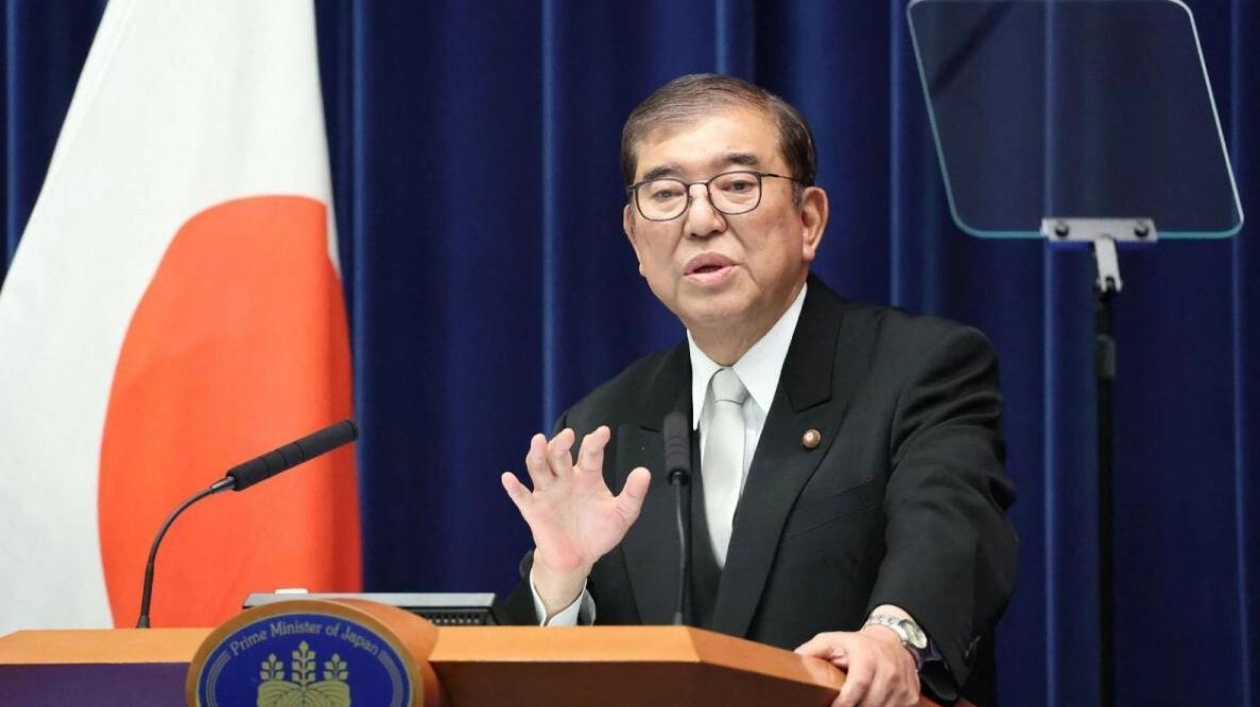Japan's Prime Minister Shigeru Ishiba addressed the media during a press conference held at the prime minister's office in Tokyo on November 11, 2024. — AFP
Despite leading the ruling coalition to its poorest general election performance in 15 years, Japanese Prime Minister Shigeru Ishiba retained his position following a parliamentary vote on Monday. Legislators designated former defense minister Ishiba as the leader of a minority government, implying potential political stalemates or the necessity for compromises to enact new legislation. Ishiba, 67, assumed office six weeks prior and called a snap election on October 27, aiming to strengthen his mandate as the leader of the conservative Liberal Democratic Party (LDP). However, discontent among voters regarding inflation and a slush fund scandal that contributed to the downfall of his predecessor, Fumio Kishida, resulted in a significant setback for the LDP and its junior coalition partner.
"I was appointed as prime minister. I bear this responsibility with gravity," Ishiba stated to reporters late at night after assembling a new cabinet. "Following the extremely challenging election results, I believe the LDP must transform into a party that truly represents the people." Members of parliament in the influential lower house convened on Monday for a special four-day session to nominate the prime minister, a crucial step post-general election. Despite losing its majority in the October election, the LDP coalition continues to be the largest bloc in the 465-seat lower house. The opposition parties are divided on pivotal issues, preventing them from mounting a credible challenge to Ishiba.
The lower house speaker declared Ishiba's appointment after a run-off—the first since 1994—where he secured 221 votes against 160 for Yoshihiko Noda, the leader of the main opposition Constitutional Democratic Party of Japan (CDP). Eighty-four votes were disqualified as they named other politicians. Some individuals joked online that the prime minister seemed to be dozing off in television footage from the three-hour parliament session—a frequent occurrence among Japanese lawmakers—as MPs queued to vote one by one. Ishiba announced a new cabinet post-vote, replacing ministers who lost their seats in the election. There remain only two women among the 20 cabinet members.
To secure sufficient influence to pass legislation in the future, the ruling bloc has sought assistance from the Democratic Party for the People (DPP), a small centrist group. The DPP has agreed to cooperate on a vote-by-vote basis while maintaining its distance from the coalition. In discussions with the LDP, it has demanded tax cuts and energy subsidies, which economists argue would significantly reduce the government's revenues. "To remain in power, Ishiba needs to pass the government budget this winter," noted Tomoaki Iwai, professor emeritus at Nihon University. "This will entail the LDP conceding some of its policies to seek cooperation from others," Iwai added.
Ishiba expressed on Monday his desire to meet directly with US president-elect Donald Trump at the earliest opportunity. He is reportedly attempting to arrange the meeting for later this month, coinciding with the Japanese premier's trip to Peru for an economic summit. Analysts have cautioned that potential new US tariffs on Chinese and Japanese goods under Trump could exacerbate inflation. Washington and domestic lawmakers are likely to pressure Ishiba for increased public spending—such as for defense and industry—and tax cuts simultaneously, according to analysts. During the late-night press conference, Ishiba emphasized the significance of defense manpower and mentioned Chinese and Russian military activities surrounding Japan and North Korea's latest ICBM missile launch. The prime minister also announced that the government will provide "more than 10 trillion yen ($65 billion) of public support to the AI and semiconductor sector by 2030".
Approval ratings for Ishiba's government hover just above 30 percent, but polls indicate a majority of the public believes he should remain prime minister. In a surprising turn, DPP leader Yuichiro Tamaki admitted on Monday to an extramarital affair reported by a tabloid. "I apologize for causing such a disturbance," he told reporters. His party later decided to retain him as leader. Alongside these negotiations, Ishiba must also address discontent within the LDP, which has governed Japan for nearly all of its post-war history. "Unless he improves his public support, those within the LDP may begin to argue they cannot contest the upper house election under Ishiba" next year and seek an alternative leader, Iwai stated. Noda vowed after the vote on Monday to "work diligently to unite the opposition parties" with an eye toward making gains in the upper house election, according to public broadcaster NHK.
Source link: https://www.khaleejtimes.com






